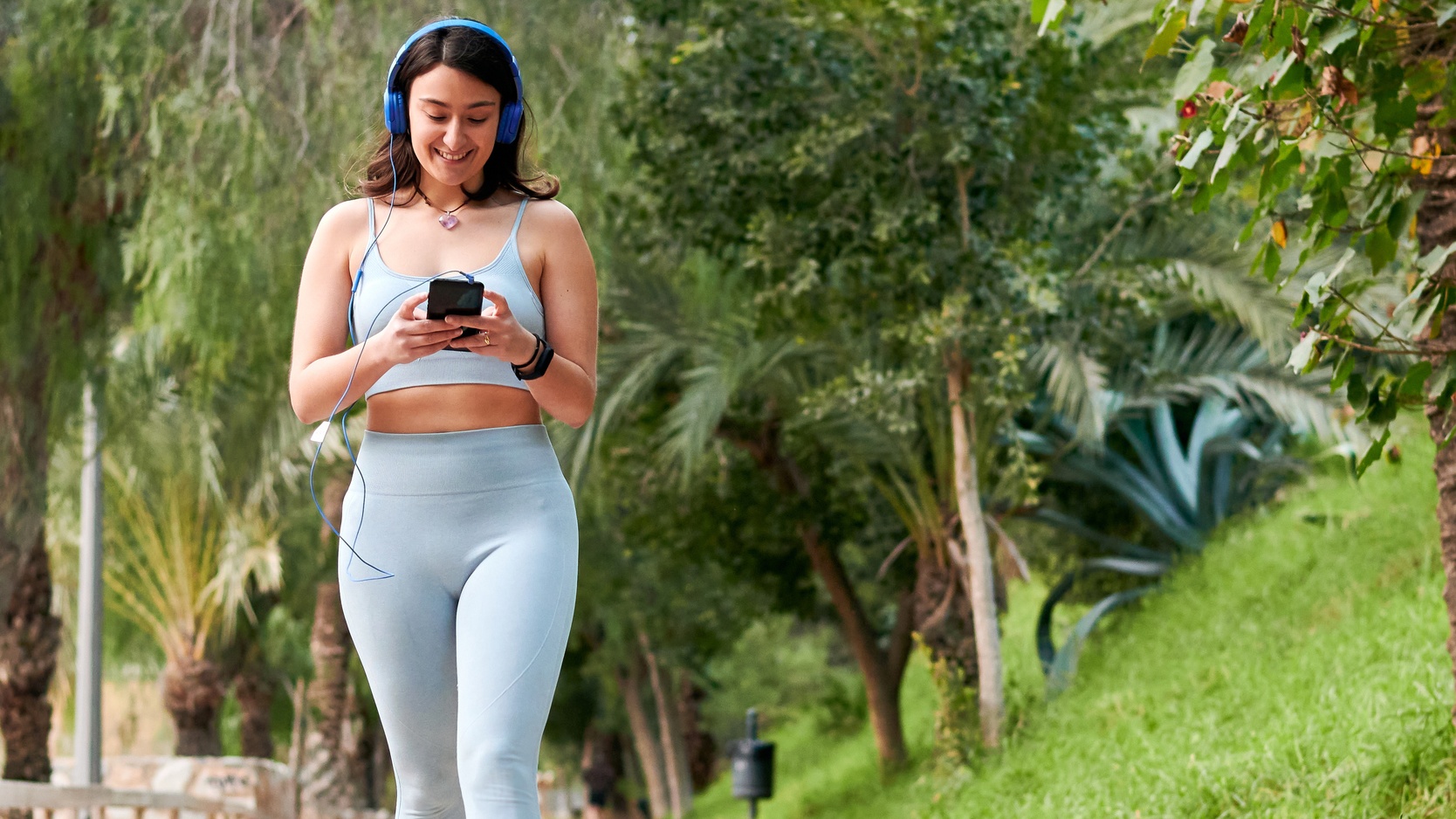I walked 20,000 steps every day for a week—and the results surprised me
Doubling my daily step count worked wonders for my muscles and mind

Start your week with achievable workout ideas, health tips and wellbeing advice in your inbox.
You are now subscribed
Your newsletter sign-up was successful
I love exercise. I work out most days and find it easy to clock up 10,000 steps. However, I’m always interested in trying new regimes that can push me out of my comfort zone, which was why I recently decided to double my step count for a week.
Increasing the amount I walk felt like a low-impact, easy way to increase the amount I move. Plus the evenings are getting lighter, so I have more time to get my steps in outside. Here’s everything that happened to me during the challenge.
It improved my recovery

Throughout the week, I kept my workout routine the same, doing a mix of strength training, Pilates, running and swimming. When I wasn’t exercising or working, I was usually walking. Racking up 20,000 steps is pretty time-consuming.
Despite the overall increase in my exercise, my muscles didn’t feel sore. I actually found the gentle nature of walking relieved my tight quads and hamstrings.
Matt Kendrick, founder and CEO of MK Reformed, part of MK Health Hub, explains to me that heading out for a stroll can be an excellent remedy for sore and stiff muscles—otherwise known as active recovery.
"This can be particularly beneficial the day after a heavy workout, as it helps to maintain mobility and reduce the tightness that often follows intense physical activity. By keeping the muscles active without overloading them, walking facilitates a quicker and more comfortable recovery process."
Matt Kendrick is a personal trainer and the founder and CEO of MK Reformed. He has worked with Olympic athletes, members of royalty and various celebrity artists.
I slept better
As my steps mounted up, I noticed I was sleeping better than ever, which was a welcome side effect.
Start your week with achievable workout ideas, health tips and wellbeing advice in your inbox.
"Regular walking, especially outdoors, exposes the body to natural light, which helps regulate circadian rhythms—the body’s internal clock that dictates sleep-wake cycles," Kendrick explains.
Walking can also benefit your mental health by reducing stress. "Coupled with the physical fatigue from walking, this makes it easier to fall asleep and stay asleep, leading to more restful nights," says Kendrick.
It wasn’t always convenient
I tend to reach 10,000 steps a day without much effort, but I had to be very intentional about doubling my goal—and it didn’t always slot into my routine. Knowing that I hadn’t completed my 20,000 steps before going out to dinner with a friend one evening was a bit of a buzzkill. I spent our time together strategizing about when and where I’d get my remaining steps in.
I also wondered about how sustainable this step count would be in the long term. I was only able to do the extra steps because of my flexible work schedule. Would someone with a regular 9-5 be able to do the same?
Kendrick doesn’t think so. "It requires a significant time commitment, often around 2.5 to 3.5 hours a day, which can be challenging to fit into a busy schedule. People with demanding jobs, long commutes or family responsibilities might find it difficult to allocate this amount of time for walking."
Final thoughts
The bottom line? I’m not going to kid myself and say I’m going to hit 20,000 steps every day, but I’m definitely going to keep striving for a high number on my fitness tracker. My recovery was better than ever thanks to the additional steps, I slept like a baby and felt a real sense of achievement at the end of the week.
Want something comfortable and supportive to help you rack up your steps? Our guide to the best walking shoes can help
Daniella Gray is an experienced health and wellbeing writer, and was an Editorial Assistant and Senior Content Writer at Health & Wellbeing magazine, where she got to explore her love of food and fitness. She holds a degree in Print Journalist from Nottingham Trent University and a NCTJ qualification.